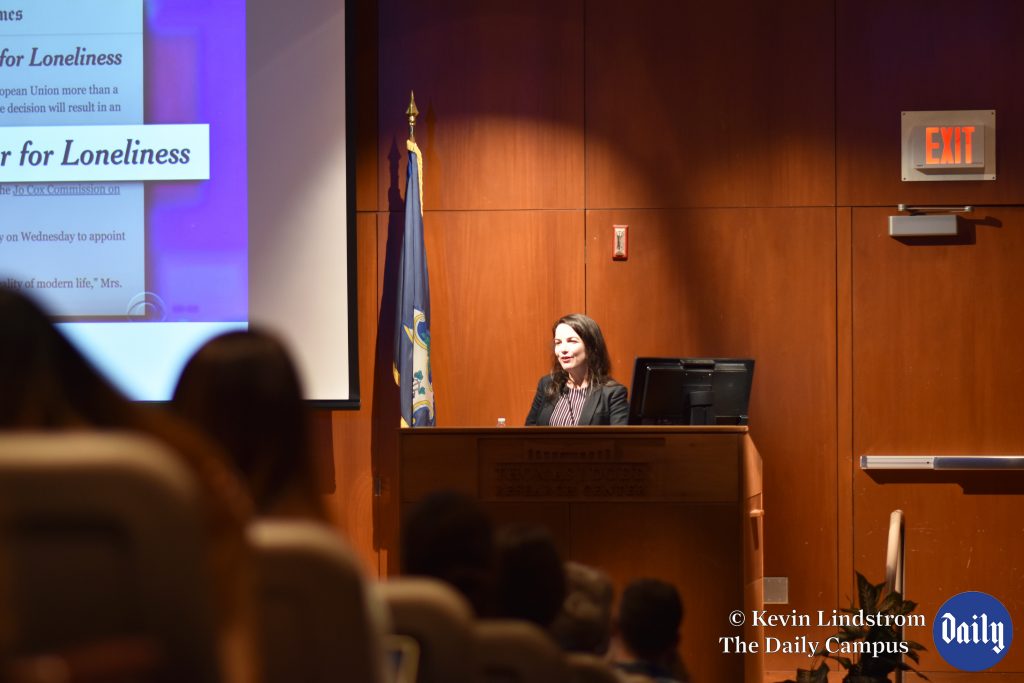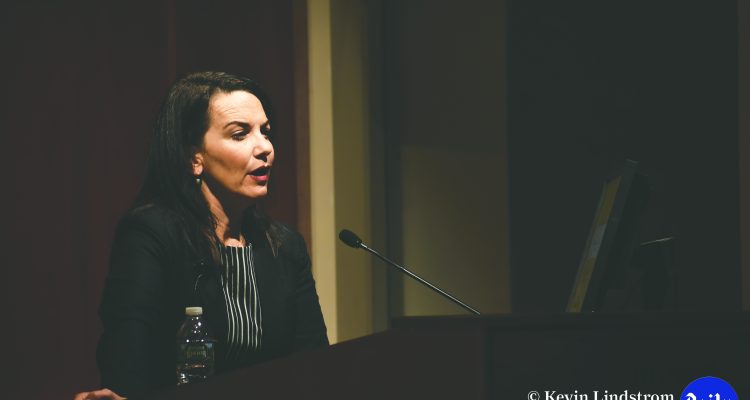By Kate Ariano
Today’s generation is always plugged in, but come to find out, we are lonelier than ever.
“I am so happy to be here and I love the theme connection is prevention,” says Dr. Julianne Holt-Lunstad.
Holt-Lunstad is a professor of psychology and neuroscience who speaks to the imminent danger loneliness poses for adults across the country. She shared her insight with the University of Connecticut community on Thursday, October 11 in the Dodd Research Center.
She talked to UConn students and faculty about the harmful effects that social disconnection can have on an individual. She also presented potential solutions to the problem of “chronic loneliness”, as described by “Fortune.”
Holt-Lunstad says it’s commonly said that disconnection is as bad for your health as smoking. She says just like we need fresh food and clean water to survive, we need a good quality of relationships as well. With it, she says, social connection can lead to a 50% reduction in risk for mortality.
One of the UConn professors in attendance of the lecture was Dr. Yihfra Kaminar, whose teachings over at the UConn School of Medicine in Farmington focus heavily on substance use disorders in adolescence.

Hold-Lunstad’s lecture was a part of the suicide prevention campaign at the University of Connecticut Storrs campus. Photo: Kevin Lindstrom/The Daily Campus
Kaminar says “…unfortunately we see increasing depression rates, suicide is going up as well as all kinds of other epidemics like obesity, the opiate epidemic, the cocaine epidemic, and they’re most likely is some connectivity or association not necessarily causation when all of these increase in prevalence.”
To Holt-Lunstad, the way to “treat” social disconnection starts by educating people, especially government officials. She says we need to lay the ground rules for what a healthy quality and quantity of social connection looks like. She calls this the “consensus guidelines for social connection”.
Holt-Lunstad also proposes what the National Academy of Medicine, formerly known as the Institute of Medicine, has recommended in the past: incorporating information about each individual person’s social connection into their electronic health records.
Small moments of connection is the last piece of advice that Holt-Lunstad has for the community. She says “It’s our everyday little actions that have a cumulative effect on our overall, long term health.”
In “greater prioritization” of the importance of healthy social connection in people’s’ lives, we can better treat those who are suffering from loneliness and the effects of prolonged isolation.
Based on Holt-Lunstad’s observations, our disconnection problem cannot be solved in a day, but by recognizing the magnitude of the issue, she says we can make small steps towards a common goal: a healthy connection with the world around us.


